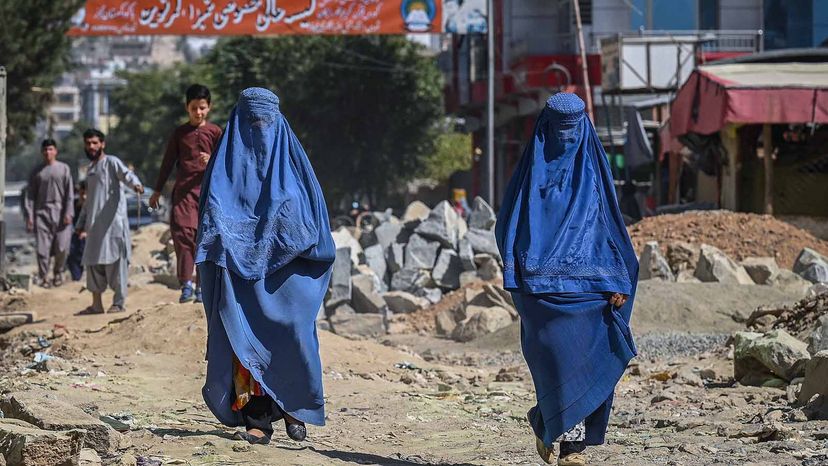Reasons Women Wear Burqas

Debates over whether to ban the burqa often assume that men force women to wear it. In many Muslim countries, women face gender-based persecution. Therefore, the burqa appears to be a symbol of patriarchal control.
There is some evidence that women in particularly conservative countries are forced to wear a burqa or niqab out of fear of beatings, arrests or honor killings. And many Muslims have protested compulsory hijab in anti-government, pro-women's rights efforts. But women in countries with and without Muslim majorities have insisted that wearing a full covering is their choice and their right. As believing Muslims, they interpret their holy text to mean that their faces must be covered.
Advertisement
Many women also say that the burqa isn't a tool of subjugation at all, but rather a means for equality. This is because they aren't judged on their appearance, and they are liberated from unwelcome advances and objectifying leers. Choosing to wear the burqa or hijab, instead of being forced to do so, is a matter of freedom of expression. That said, women who wear hijab sometimes face discrimination or acts of hostility and violence based on Islamophobia.
Another reason women say they continue to wear the veil is for purposes of group identity. It's a badge of honor, solidarity, and ethnic pride in a world that often values Eurocentric beauty standards and cultural assimilation. But proponents of veil bans maintain that the garments are a security threat, and that bans promote unity over oppression. So are bans of full-face veils justified, or are they a human rights violation?